Media coverage
Share


Pacific Standard
The temperature goals established by the Paris climate agreement could affect the planet in dramatically different ways. Article about the findings in a recent paper by Climate Analytics' Carl Schleussner.

Climate Home
15 countries accounting for 0.04% of emissions ratified the Paris Agreement during the UN signing ceremony in New York. Another 23 nations accounting for 51% of emissions have declared their intention to follow by the end of 2016, according to a tracker by Climate Analytics. It brings the double threshold tantalisingly close. So what would it take to get over the finish line?

Voice of America
Video featuring Climate Analytics' Carl Schleussner talking about his recent study on differences in climate impacts between 1.5°C and 2°C warming levels.
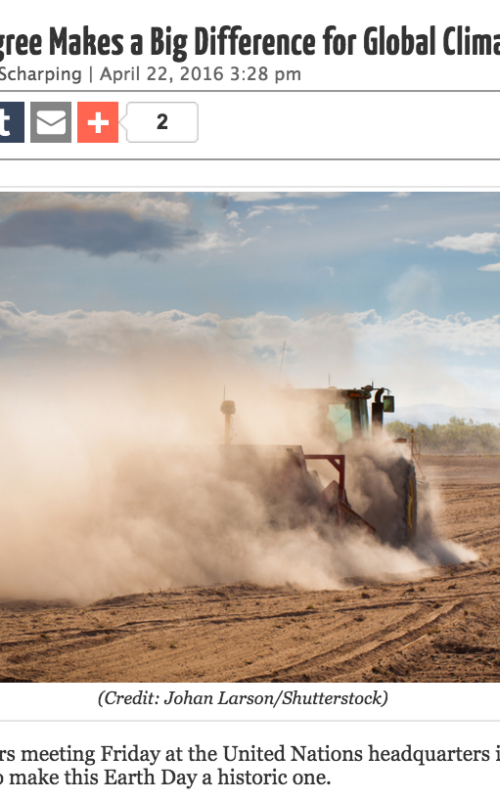
Discovery Magazine
More than 150 countries are expected to sign the Paris Agreement, an accord reached last December designed to keep global warming “well below” 2 degrees Celsius by the end of the century, with some nations arguing that the world should rally around a more stringent threshold of 1.5 C. And the difference between the two goals might be significant: A new study shows that the world would look substantially different if mean global temperatures rise by 2 C, rather than 1.5 C.

The Washington Post
As over 150 nations assemble to sign the Paris climate agreement in New York on Friday, reams of new analysis are pouring out from the planet’s vital number-crunchers, who look at the fundamental relationship between how much carbon we put in the air and how much the planet’s temperature increases as a result.
And it’s adding up to a somber verdict: We seem closer to must-avoid climate thresholds than we thought — and crossing them may have bigger consequences than we recognize.
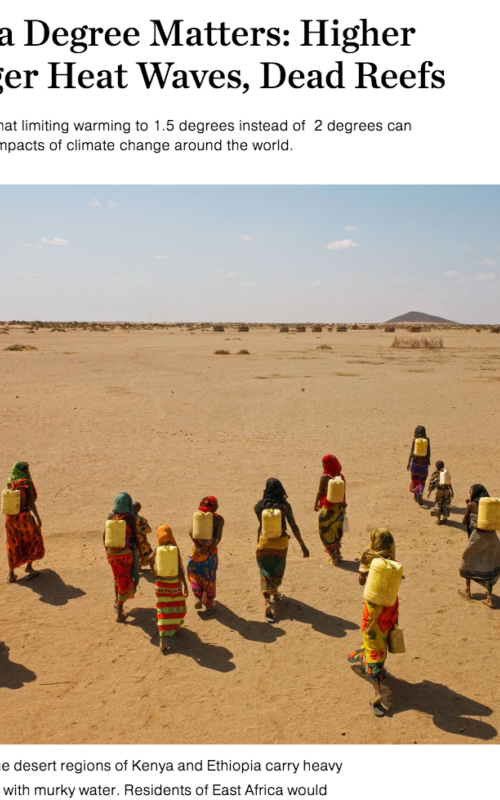
National Geographic
Article covering new research by Climate Analytics' Dr Carl Schleussner, which suggests that limiting warming to 1.5 degrees instead of 2 degrees can dramatically reduce the impacts of climate change around the world.
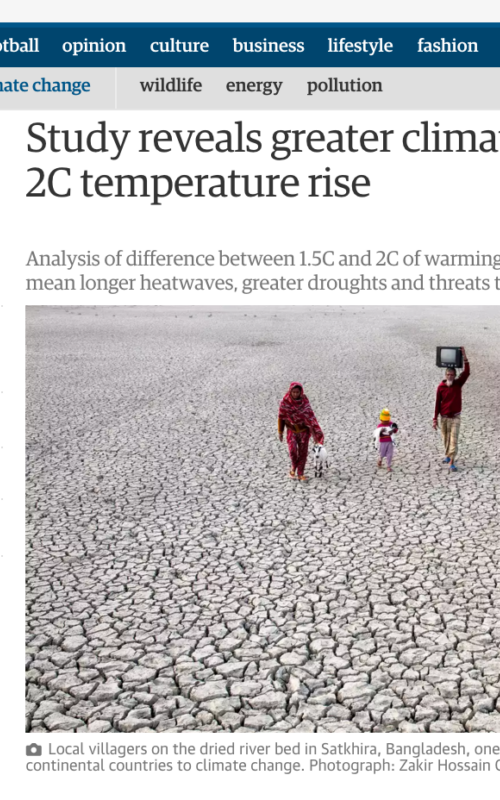
The Guardian
Analysis of difference between 1.5C and 2C of warming finds extra 0.5C would mean longer heatwaves, greater droughts and threats to crops and coral reefs. A new study by Climate Analytics' Dr. Carl-Friedrich Schleussner identifies significant differences in climate impacts between 1.5°C and 2°C global warming levels.
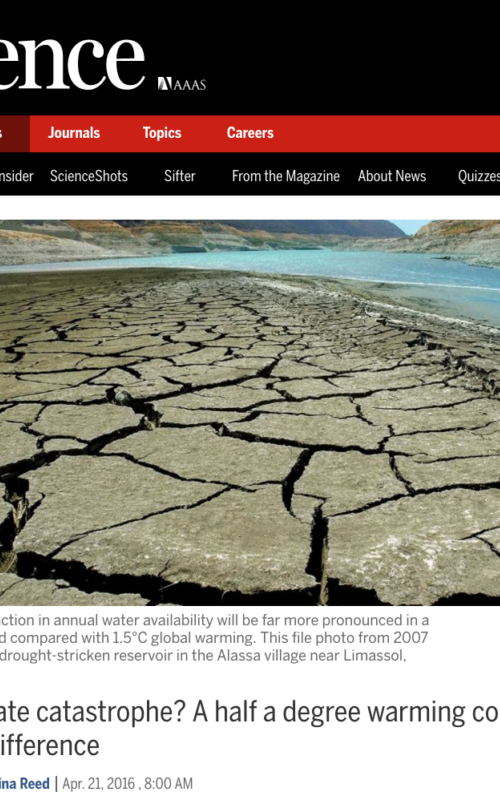
Science
A study presented in Vienna today at the European Geophysical Union’s (EGU's) annual meeting backs up those concerns, providing new evidence that such warming could still lead to catastrophic droughts and sea level rise. But reducing the threshold by just half a degree, to 1.5°C, the scientists say, would make a world of difference.
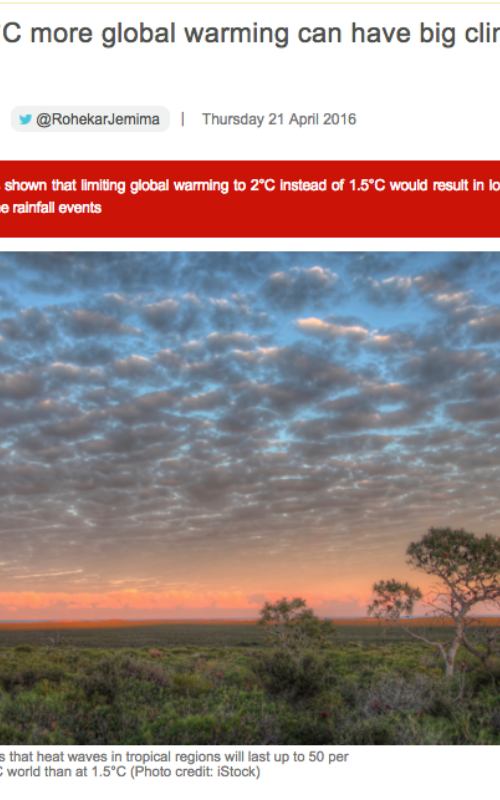
Down to Earth
Even as more than 150 countries prepare to sign the Paris Agreement, research published in journal Earth System Dynamics has shown that a global warming of 2°C will be substantially more devastating for the planet’s climate than 1.5°C by 2100. Researchers have found significant differences in impacts of 2°C and 1.5°C on water availability, agricultural yields, sea levels, extreme weather events and coral reefs.
